India wants Pakistan to keep tabs on terror
Indian Prime Minister Manmohan Singh pressed US President Barack Obama to convince Pakistan to take action against terrorists
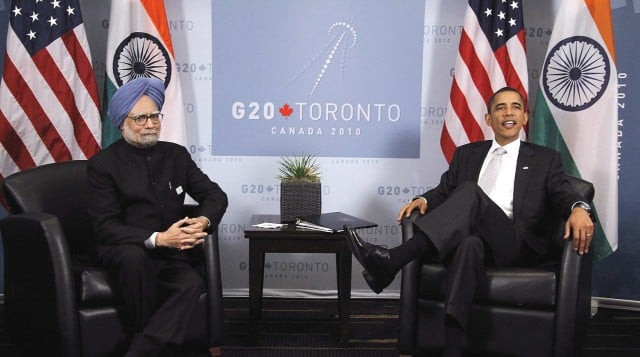
Briefing reporters about the 30-minute long Singh-Obama meeting on the sidelines of the G-20 Summit in Toronto, Indian Foreign Secretary Nirupama Rao said the two leaders discussed the regional situation and spoke of counter-terrorism cooperation in Afghanistan.
Singh briefed Obama about recent peace initiatives with Pakistan but said that Islamabad should abide by its commitment and not to allow terrorism emanating from its soil to be directed against India.
Information provided by David Coleman Headley was also discussed and the two leaders talked about whether Pakistan was serious about using this information to combat terror in the region.
Headley, who confessed to playing a role in the 26/11 Mumbai attacks, was interrogated by Indian investigators this month. During his interrogation Headley made disclosures that investigators described as “useful.”
Singh told Obama that while peace initiatives had their place, the burden was on Pakistan to show whether it was serious about using the information to tackle terrorism or not.
In response to a question, Rao said the issue of extraditing former Union Carbide Chief Warren Anderson did not come up during the meeting.
Asked about Interior Minister Rehman Malik’s statement that it was not possible for either Pakistan or India to control the likes of LeT chief Hafiz Saeed, she said it was possible for Pakistan to control the activities of people like Saeed.
Rao said Indian Home Minister P Chidambaram had told Pakistani officials during his trip to Islamabad that New Delhi hoped Islamabad would pay special attention to Saeed’s activities. Rao said the meeting between Singh and Obama was marked with warmth and cordiality. According to her, President Obama said he was looking forward to his visit to India in November and Singh said India was preparing eagerly for the visit.
Meanwhile, in another address at the G-20 conference, Obama described Pakistan’s efforts to promote a political settlement in Afghanistan “useful.” Commenting on the situation in Afghanistan at a press conference at the end of the G-20 summit, Obama cautioned that the Afghan political peace process was still in its initial stages.
According to the New York Times, the US president avoided any direct comment on whether the Haqqani network, the Taliban group reportedly proposed by Pakistan as part of a power-sharing deal, could become part of Afghanistan’s future leadership. But he said “conversations between the Afghan government and the Pakistani government, building trust between those two governments, are a useful step”.
Obama also said a political solution to the conflict was necessary and suggested elements of the Taliban insurgency could be part of negotiations. As for Pakistan’s effort to broker talks, Obama added: “I think it’s too early to tell. I think we have to view these efforts with scepticism but also with openness. Not all of [the Taliban] are going to be thinking the same way about the Afghan government, about the future of Afghanistan. And so were going to have to sort through how these talks take place.”
Published in The Express Tribune, June 29th, 2010.


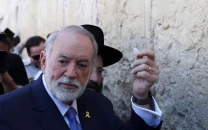

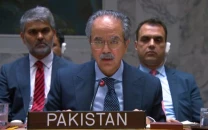
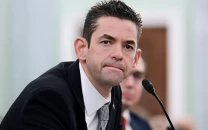
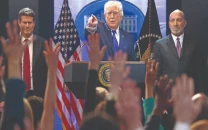











COMMENTS
Comments are moderated and generally will be posted if they are on-topic and not abusive.
For more information, please see our Comments FAQ